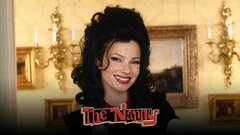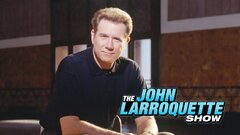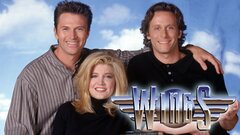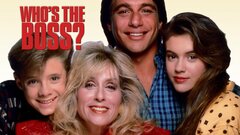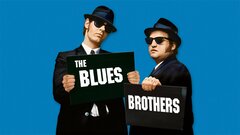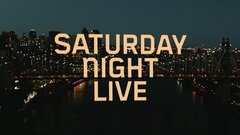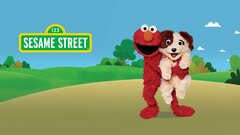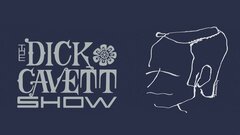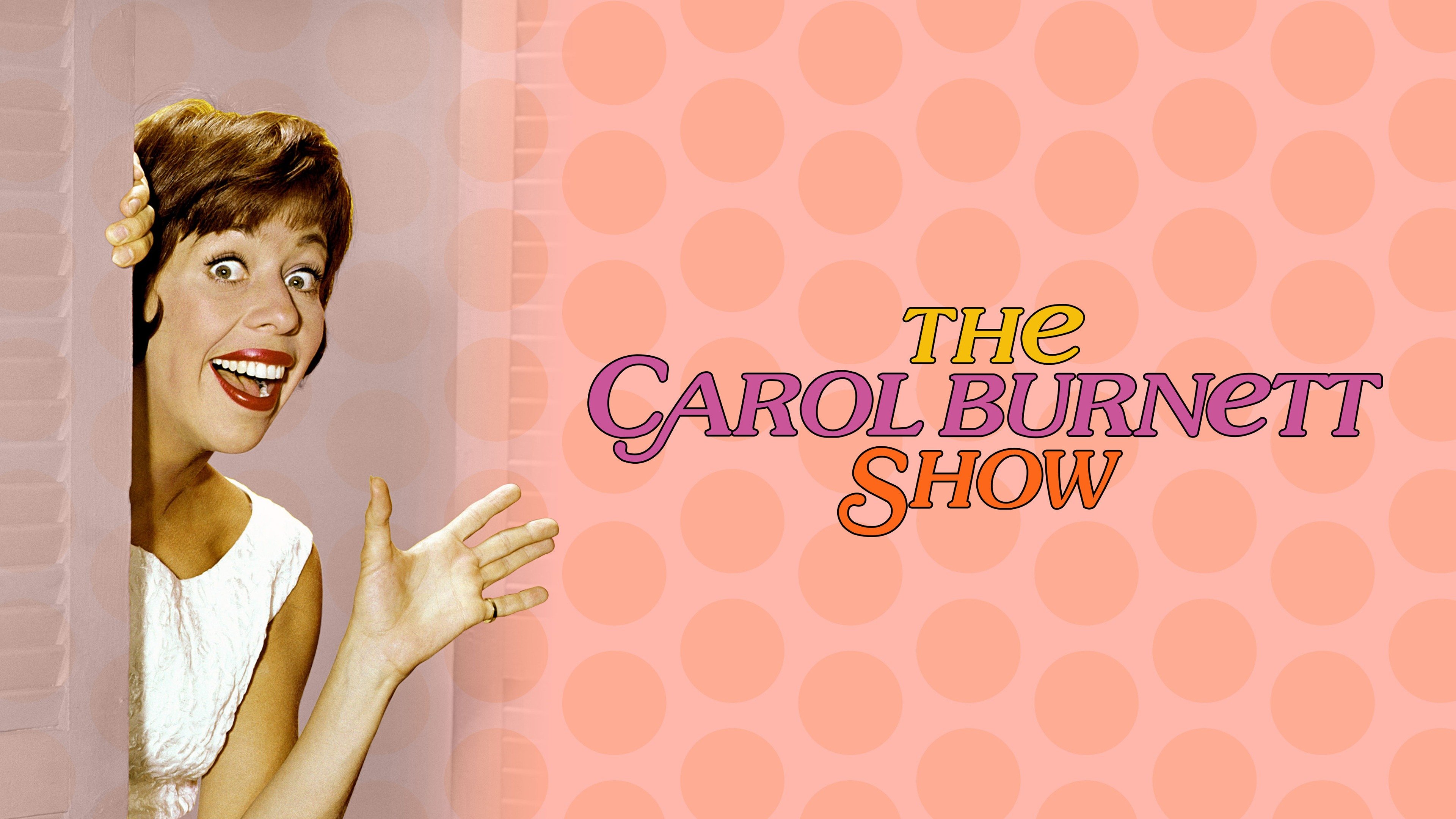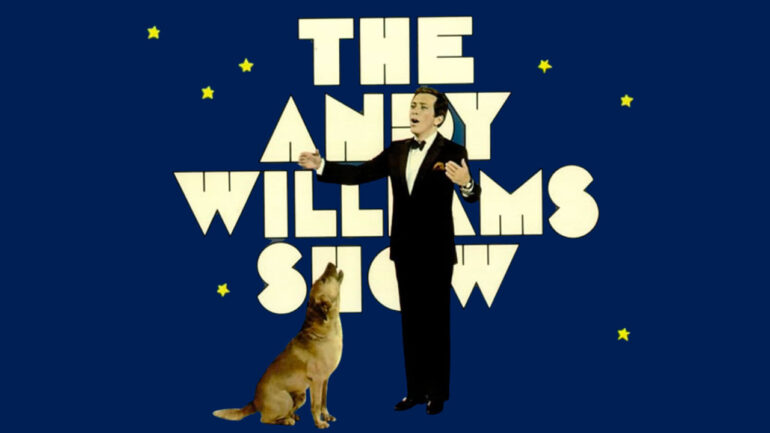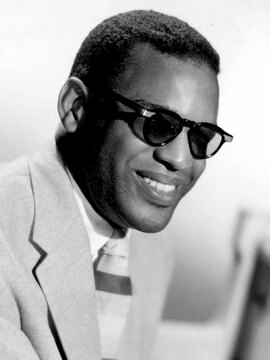"I was born with music inside me. That's the only explanation I know of," Ray Charles wrote in his 1978 autobiography, Brother Ray. "Music was one of my parts...like my blood... Like my blood. It was a force already with me when I arrived on the scene. It was a necessity for me, like food or water." As one of the most original American recording artists to emerge in the 20th century, Charles' music got into the blood of generations of admirers as well. His signature soul and R&B sounds-in such definitive Charles hits as "Georgia on My Mind," "You Don't Know Me," "Hit the Road Jack," "Unchain My Heart," "I Can't Stop Loving You" and "What'd I Say" converged with his personal image as an artist of prodigious talent and infectious good spirits to help him overcome his physical handicap - though that, too, contributed to his enduring and distinctive image as a pop culture icon.
Born Sept. 23, 1930, as Ray Charles Robinson (he later dropped the surname in deference to Sugar Ray Robinson) to a impoverished Depression-era family in the segregated South in Albany, Georgia, Charles was blind by age seven--possibly due to glaucoma, possibly not; he was never convinced of the diagnosis--and orphaned at 15, but the extraordinary skills as a pianist he'd cultivated since age 3 prepared him for the music classes he's attend after he was send to the state-supported St. Augustine School for the Deaf and the Blind, where he learned to read and write music in Braille, score for big bands and play many instruments by ear. After graduating and working black dance halls, Charles moved to Seattle and began patterning himself after Nat "King" Cole (it was there he made nascent composer-arranger Quincy Jones, whom Charles taught to write music). Soon Charles developed his own signature style, a potent blend of gospel and R&B that soon was dubbed soul music (his music would later incorporate an even wider range of musical styles, including rock and roll, country, jazz, swing and blues). In the mid-1950s, he added a team of female backup singers dubbed the Raelettes, who provided responses like a gospel choir and they became a permanent part of his musical image. He impressed many with his first major hit release, "I Got a Woman," in 1955 and earned the nickname "The Genius of Soul," but it wasn't until 1959 that Charles really sent shockwaves through the music industry with his breakthrough hit "What'd I Say." That same year he introduced his first number one hit, a version of a song that would become a particular anthem for the singer: "Georgia On My Mind" (after Charles' popularization, his interpretation of the tune became the state's official song in 1979). For the next several decades Charles would continue to score dozens of pop hits, spanning all manner of musical styles and seemingly appealing to all tastes-his fans disciples are as diverse as Sammy Davis, Jr., Billy J l, Willie Nelson and Clint Eastwood . He also became a familiar fixture on television, known for his impenetrably black sunglasses, dazzling smile, and enthusiastic side-to-side sway while playing. Out of the limelight, his personal life was less rosy: his incorrigible womanizing led to the demise of two marriages (he had nine children-possibly more-with his wives and other women), and he battled a heroin addiction for decades before finally kicking it cold turkey after an arrest in a Boston airport in 1964-it bothered him too much to have his fans think his music was merely the result of a narcotic. He needn't have worried: as a pop music icon his successes would range from the sublime-his ascendant, emotional rendition of "America the Beautiful" would soon permeate the culture everywhere, from sporting events to political rallies-to the enjoyably silly-his ubiquitous "Uh-huh" Diet Pepsi ads were seemingly everywhere in the 1990s (he received a 1990 Clio Award as Best Male Performer for the ads). Charles recorded over 60 albums, and his collection of hits and essentials includes "Hallelujah I Love Her So," "Drown In My Own Tears," "Swannee River Rock," "Hit the Road, Jack," "Unchain My Heart," "Busted," "I Can't Stop Lovin' You," "Mess Around," "I'm Movin' On" and "Seven Spanish Angels," a duet with Nelson. Over the course of his career, Charles won 12 competitive Grammys, earned three Emmy nominations, scored the Kennedy Center Honors, the Grammy Lifetime Achievement Award, the National Medal of Arts and inductions into the Rock, Jazz and Rhythm and Blues halls of fame (he was one of the original inductees into The Rock and Roll Hall of Fame in 1986, with Quincy Jones presenting). He won nine of his dozen Grammys between 1960 and 1966, including the best R&B recording three consecutive years ("Hit the Road Jack," "I Can't Stop Loving You" and "Busted"). His final Grammy came in 1993 for "A Song for You," which President Bill Clinton, who presented Charles that year with the National Medal of Arts, had cited as his favorite song. The musician was a staple of television, performing on such series as "The Perry Como Show," "The Andy Williams Show," "The Flip Wilson Show," "Saturday Night Live," "The Tonight Show" and countless musical specials, especially with his unlikely late-life performing partner Willie Nelson. Other non-musical series-including "Who's the Boss," "Wings" and "Moonlighting"-tapped Charles to guest star as himself. As an actor he appeared as a homeless man on a 1987 episode of "St. Elsewhere," and in 1998 he had a recurring role as Sammy on Fran Drescher's hit CBS sitcom "The Nanny." Charles was nominated for Emmys for his contributions to "The Kennedy Center Honors: A Celebration of the Performing Arts (1991) and "Irving Berlin's 100th Birthday Celebration" (1988), and for Outstanding Individual Achievement in Music and Lyrics for "Bob Hope: The First 90 Years" (1993) (TV)-with famed jokewriter Buz Kohan as lyricist-for the song "Where There's Life, There's Hope." Charles was also no stranger to the big screen: The 1966 film "Ballad in Blue," directed by Paul Heinreid, cast Charles as himself on a swinging European tour where he tries to help a blind boy meet a top Parisian eye specialist; the following year he sang the title theme for the Oscar winning film "In the Heat of the Night." Charles netted cult-movie immortality with his role as a blind but well-defended pawn shop proprietor in the 1980 musical-comedy "The Blues Brothers," starring his longtime fans John Belushi and Dan Aykroyd. In the 1988 feature "Limit Up" he played the part of God. Charles also appeared as himself in the Warren Beatty-Annette Bening remake "Love Affair" (1994) and played a bus driver, to big laughs, in the 1996 spoof "Spy Hard" starring Leslie Neilson. In addition, Charles' songs have enlivened and added mood to the soundtracks of many motion pictures, including "The Dream Team" (1989), "Sleepless In Seattle" (1993), "Bye Bye Love" (1995), "Eve's Bayou" (1997), "The Hurricane" (1999) and "The Divine Secrets of the Ya-Ya Sisterhood" (2002). But the musician's amazing rags-to-riches life story proved even more dramatic than most cinematic fictions, and inspired the biopic "Unchain My Heart: The Ray Charles Story" (2004) starring Jamie Foxx in the lead role, a project that was produced and filmed during Charles' lifetime. The Grammy winner's final public appearance was alongside his longtime friend and fan, actor Clint Eastwood, in April 2004, when the city of Los Angeles designated the singer's studios, built 40 years ago, as a historic landmark. He died in June of that year of liver failure following complications of hip surgery.





















